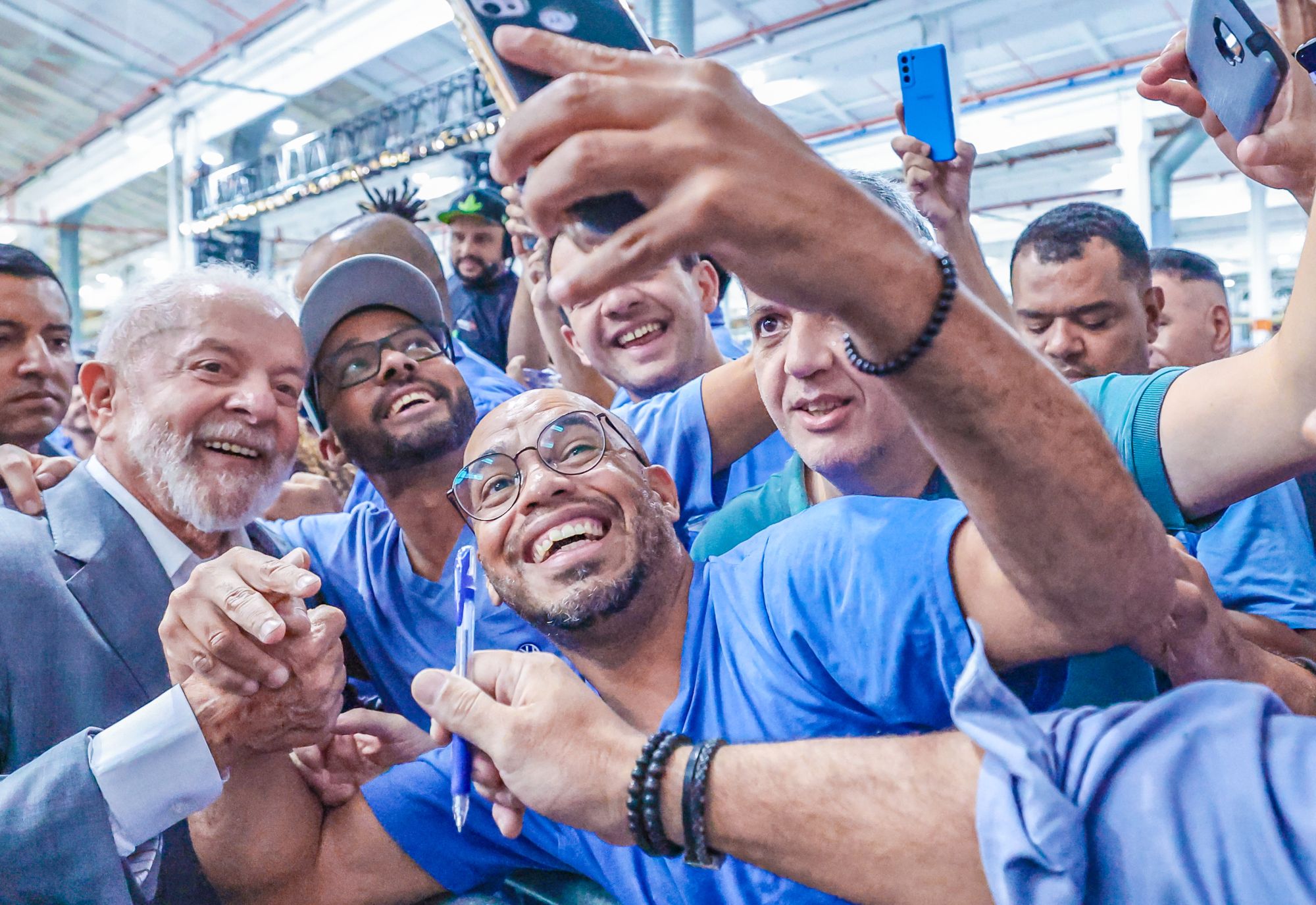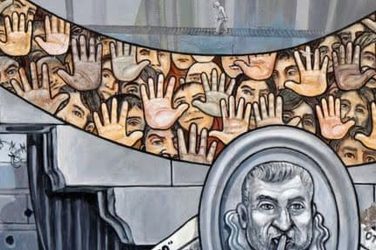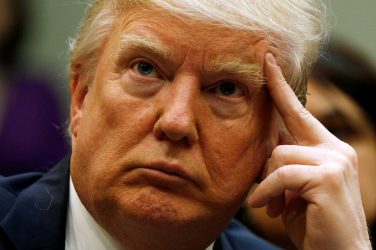A year is a long time in Brazilian politics.
When Luiz Inácio Lula da Silva assumed office in Brazil for a third time in January 2023, many observers were pessimistic about the returning president’s chances of governing successfully.
The president, now 78 years old, had recently defeated Jair Bolsonaro, the hard-right former president, by a narrow margin – 50.9% to 49.1%. But despite that victory, many Brazilian state governments, as well as the country’s Congress, remained dominated by followers of Bolsonaro.
Following his electoral loss in 2022, Bolsonaro refused at first to acknowledge defeat. He declined to take part in the traditional passing of the presidential sash during Lula’s January 1, 2023, inauguration ceremony.
Then a week later, on January 8, thousands of Bolsonaro supporters invaded and vandalized Brazil’s presidential palace, Congress and Supreme Court buildings in Brasília, the capital, in an alleged attempt to trigger a state of siege and annul Lula’s win.
The attempted insurrection failed but nonetheless left a lingering gloom about the state of politics in Brazil.
A year later, the pessimism seems to have been unwarranted.
Political unity
In a recent Atlas Intel poll, 52% of Brazilians said they approve of Lula’s performance, while 58% responded that they see the government’s performance as “very good,” “good” or “OK.” In contrast, 39% described it as “bad” or “very bad.”
How has Lula’s administration managed, at least so far, to beat expectations?
As a scholar of Brazilian politics, I believe his popularity has a lot to do with what happened on January 8, 2023. The attack in Brasilia has apparently defused the right-wing threat to Lula’s hold on power. With a police investigation in February 2024 zeroing in on Bolsonaro and his inner circle, the former president appears to be in no position to mount a challenge.
At the same time, Lula has kept his broad coalition largely intact by working with pragmatic members of Congress who don’t belong to his leftist political party to build and maintain a legislative majority.
The January 8 attack was followed by a show of political unity in Brazil. Most politicians, including many who supported Bolsonaro’s reelection, condemned the assault on democracy.
Similarly, a large majority of Brazilians condemned the attack and approved of measures to investigate and prosecute those behind the attempted coup.
Here, too, Lula appears to have played his hand well. Rather than use the opportunity to purge Bolsonaro supporters from key positions in the government, he refrained from installing his own loyalists.
For example, when the governor of the Federal District, Ibaneis Rocha, was suspended over his handling of the unrest, his vice governor – a Bolsonaro supporter – was allowed to replace him.
Bolsonaro’s convictions
Meanwhile, the investigation and prosecution of Bolsonaro and his inner circle have weakened the political right.
Bolsonaro was convicted of abusing political power and misusing public media in June 2023. That case dealt with a meeting before the 2022 elections in which he told foreign ambassadors that Brazil’s electronic voting system was subject to fraud and that the Supreme Court was prepared to favor Lula.
Due to that conviction, Bolsonaro, who is now 68 years old, cannot run for office for the next eight years.
In October 2023, Brazil’s Superior Electoral Court convicted Bolsonaro again, this time for abusing political power during an independence day celebration.
As of February 2024, Brazil’s Federal Police are investigating the Bolsonaro administration’s alleged use of an intelligence agency to spy on its political enemies and the alleged attempt of some Bolsonaro insiders to subvert the results of the 2022 elections.
While such investigations could be perceived as political, Lula’s government has been somewhat insulated from such criticism because Brazil’s government can influence, but not control, its judiciary.
Moreover Lula has stressed the collaborative nature of his administration, presenting it as a coalition government that is not ruled exclusively by his party.
Broad coalition
The center-left coalition of 10 parties that backed Lula’s presidential bid has grown since he took office. Two cabinet positions even went to politicians who had supported Bolsonaro in the past.
Lula’s party, the Partido dos Trabalhadores, or Workers’ Party, holds only six of the 31 cabinet positions. And the president has had to exert his influence over his own party to keep dissenting voices within it at bay.
Lula’s willingness to work with Congress and his big tent approach to consensus-building starkly contrast with Bolsonaro’s political polarization.
On February 1, 2023, Rodrigo Pacheco, the Senate’s president, and Arthur Lira, who is president of Brazil’s lower house of Congress, were reelected. Lula chose to support their candidacies despite both men being allied with Bolsonaro in the 2022 election campaign.
Once the congressional term began, Lula was able to use his experience and personal relationships with lawmakers to build the majorities that now support his agenda.
Lula has revived his signature Bolsa Família program, which provides 21 million families – more than a quarter of the population – with an average of R$ 670 reais (US$ 136) per month. Brazil has increased the minimum wage in real terms and is streamlining and simplifying its tax system in ways that will help individual taxpayers and businesses.
Stability is a big plus
What makes the popularity and repositioning of Lula as a unity leader all the more remarkable is that the left-wing politician was himself seen as a divisive figure not too long ago. But Bolsonaro’s presidency changed the tenor of Brazilian politics.
Most Brazilians today appear to want to overcome the divisions Bolsonaro promoted and favor stability and predictable policies over seeing their own side dominate the government.
Lula’s popularity has also benefited from Brazil’s economy, which performed far better in 2023 than many economists had expected.
Inflation fell to 4.6% at the end of 2023, less than half the pace it was running a year earlier. Gross domestic product grew 3% last year, about the same rate as in 2022. And unemployment fell to 7.4%, the lowest level since 2014.
The strong economy has helped boost Lula’s popularity because he has been able to assure centrists that he’s governing responsibly.
In politics, as with investing, past performance does not guarantee future returns. But for now, Lula’s pragmatic coalition-building and his careful negotiations with Congress are paying off.
Director of the Kimberly Green Latin American and Caribbean Center, Florida International University.
This article was originally published in The Conversation. Read the original article here: https://theconversation.com/how-lulas-big-tent-pragmatism-won-over-brazil-again-with-a-little-help-from-a-backlash-to-bolsonaro-223141














